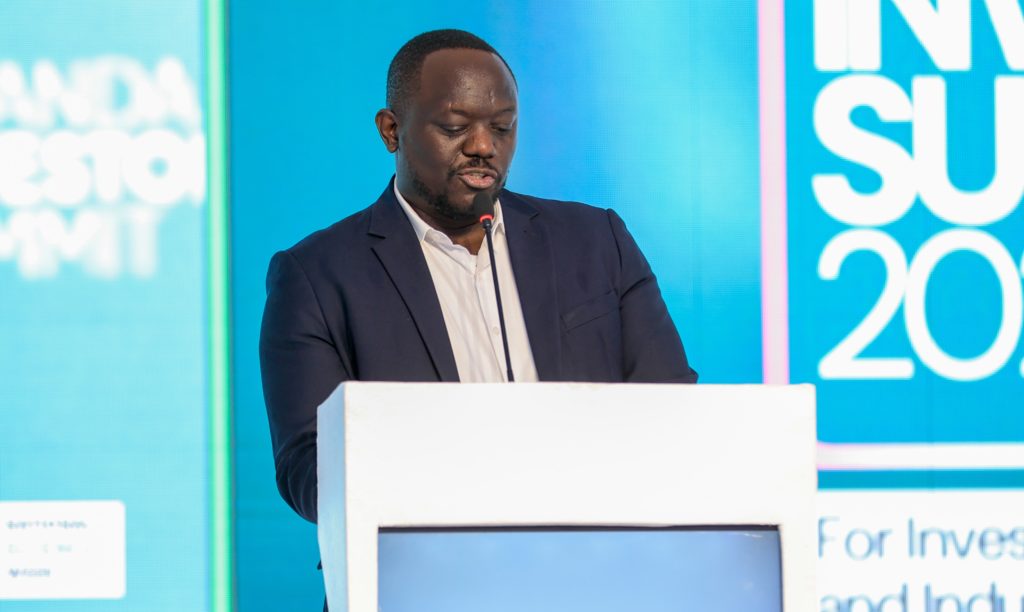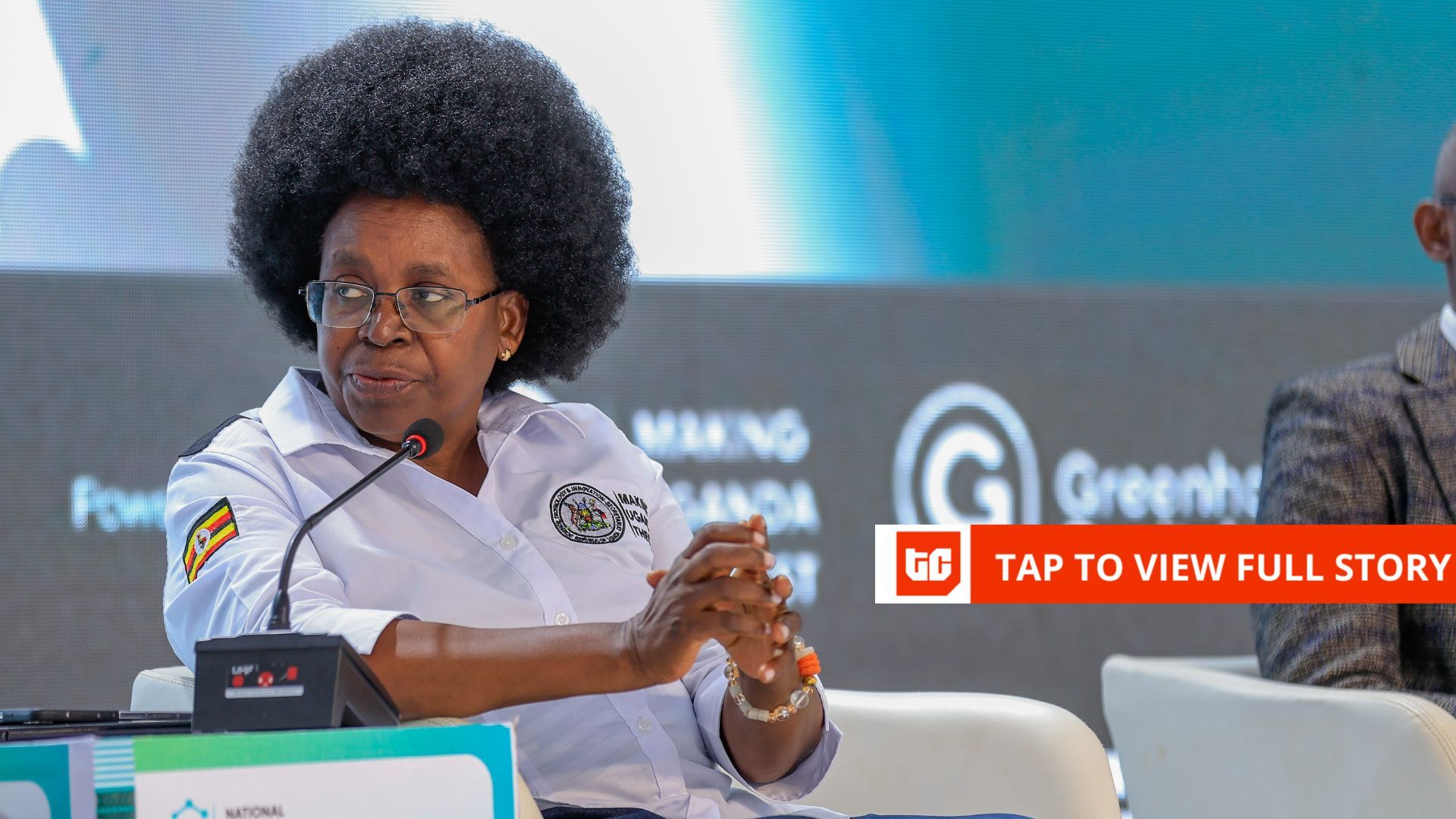In Kampala, Uganda, on June 19, just past 9 a.m., electric buses rolled through the gates of Kololo Independence Grounds, ferrying investors, policymakers, and tech founders into what has become the most critical stage for Uganda’s tech ambitions.
The 2nd Uganda Investor Summit was not an event for flashy app demos and fevered pitches but a quiet statement of intent. An electric bus, designed, and assembled in Uganda by state-backed Kiira Motors, shuttled investors and dignitaries to the summit venue. Beyond a means of transport, the bus symbolised how Uganda is doing tech differently by starting with the hard stuff — manufacturing, hardware, logistics, and high-investment science — and leaving the startup hype for others.
“This summit,” said Dr. Monica Musenero, Uganda’s Minister for Science, Technology and Innovation, “comes at a point when we are really designing Uganda’s science, technology, and innovation environment to go to market.”
Her voice, clear and commanding in a room full of local founders and foreign investors, did not dwell on high valuation figures or VC dreams. Instead, she made a grounded pitch for a country that has spent the last four years, in her words, “preparing the bride.”
“We have matured our innovation ecosystem,” she said. “We have custom-designed it to be suitable for the purpose. Many people have asked why we weren’t telling them what we were doing. And I’ve said — we were preparing the bride. And now it’s time to meet her.”
A long game
Uganda’s tech ambitions are to create a pipeline of high-impact, often science-heavy businesses that touch the country’s real economy, including agriculture, energy, public transport, and health. Agriculture employs over 70% of the country’s workforce. Over 60% of electricity needs remain unmet in rural areas. And import bills for pharmaceutical and industrial goods run into the billions.
The government is betting that technology — particularly hardware and research-intensive innovation — can help the country escape its low-productivity trap.
“Those of you who came last year, you saw our ambition,” she said. “But this year, we want you to see the bride. We have been preparing her. She is ready.”
The metaphor may sound poetic and obscure meaning, but Musenero’s message is clear: Uganda has done the groundwork putting policies, infrastructure, and pilot projects in place. Now, the country is seeking capital to scale what it has built.
Among Uganda’s top pitches is Kiira. Born out of a Makerere University project, the automaker has become the government’s flagship for what it calls “strategic deep tech.” With a new assembly plant in Jinja, about 90km west of the capital, and plans to produce 5,000 electric buses a year by 2026, it has already secured about $40 million in state funding.
Image Source: KIIRA
While critics question whether the project can scale, it’s one of the clearest examples of how Uganda is using state capital to create domestic champions, not just hoping private capital will do the job.
Not far from the capital, Dei Biopharma is manufacturing over 3,000 pharmaceutical products at its high-capacity plant, serving both domestic and regional markets.
It is a shift from policy talk to product validation, and it runs deeper than the conference stage. Government-backed engineers are building and testing hardware prototypes ranging from smart meters to diagnostic devices, creating a pipeline of locally designed solutions for critical sectors.
“Our entrepreneurs do not have the luxury of easy money,” David Gonahasa, Managing Director at Tripesa, a payments solution startup, said during a spirited address at the opening plenary. “We have had to hustle, and hustle, we will.”
His message was both a rallying cry and a provocation. In an African tech ecosystem still dominated by consumer-facing apps, fintechs, and “move fast” ventures built for quick exits, Uganda is attempting something far more ambitious — and more difficult. The approach is already attracting cautious praise. Several investors at the summit pointed to a maturing generation of Ugandan founders who are now building for complexity, not virality.
“We saw FutureLink, eMyShopp, Flow, Tripesa — some of your portfolio companies — in the room,” Gonahasa told the audience. “And for those who got in early, we’re confident you made the right decision.”

Image Source: STI
The government is also trying to address longstanding friction points. Responding to investor feedback from the first summit in 2022, Uganda has introduced three-year tax breaks for early-stage companies, committed local capital to co-fund startups, and invested in infrastructure to support deep-tech development.
There are early signs of success. A locally built AI studio, dubbed “Crane AI,” has created offline language models tailored for Ugandan dialects. A Kampala-based company is now exporting proprietary IoT sensors to clients in Switzerland, Kenya, and Nigeria. Uganda Industrial Research Institute (UIRI) is helping Ugandan hardware engineers prototype diagnostic equipment and lab tools that previously had to be imported.
Uganda is on it’s own path
Uganda is also trying to leverage structural advantages that other African countries may lack. With nearly 75% of its 48 million people under the age of 35, Uganda has one of the youngest populations on the continent. The country is densely populated, making it an ideal place to validate and scale products quickly.
Then there’s power. Uganda has an electricity surplus—predominantly green—thanks to years of investment in hydroelectric infrastructure. While much of Sub-Saharan Africa struggles with blackouts, Uganda can credibly offer uninterrupted electricity to startups and manufacturers.
“We cannot consume all the power we generate. Your factories, your servers, your batteries — they will not go dark here,” Musenero said.
But challenges remain. Policy execution is uneven. Regulatory delays continue to frustrate foreign partners. And despite government efforts, the private capital pool remains shallow.

Image Source: STI
Musenero is well aware of Uganda’s capital constraints — the country does not sit among Africa’s Big Four when it comes to venture funding. In 2024, over 67% of all disclosed VC investments in Africa went to startups in Nigeria, Kenya, South Africa, and Egypt, primarily concentrated on fintech, logistics, and B2C platforms. Uganda, by comparison, saw under $10 million in VC funding that year, less than 1% of the continent’s total.
And yet, Uganda is refusing to copy its neighbours’ playbook.
“These next two days will reveal the Uganda of the future,” Musenero told investors. “A nation not only aiming to grow its GDP from $50 to $500 billion but actively building its entrepreneurial ecosystem. Your money will be invested in what could easily be the best validation market in Africa.”
“And yes, now we need the money. So take this journey with us,” he urged them.
For Musenero and the technocrats backing this shift, Uganda’s relative absence from Africa’s startup league tables is not a weakness but a strategic opening presenting a chance to design an ecosystem not distorted by the fast money and short timelines that define many other markets. The result is a deliberate, if slower, build, but one anchored in national industrial policy.
Mark your calendars! Moonshot by is back in Lagos on October 15–16! Join Africa’s top founders, creatives & tech leaders for 2 days of keynotes, mixers & future-forward ideas. Early bird tickets now 20% off—don’t snooze! moonshot..com










